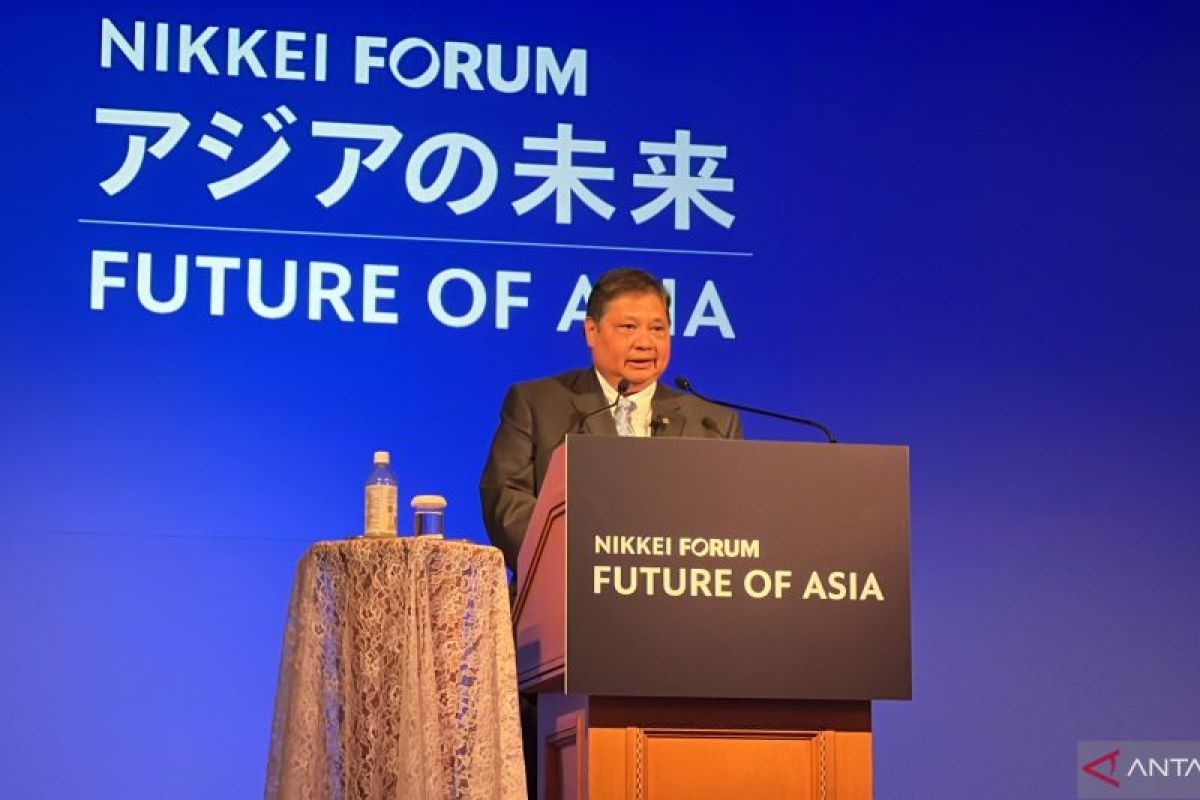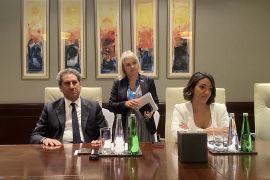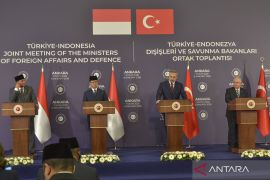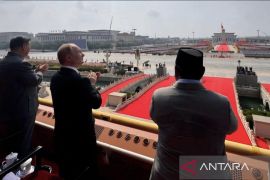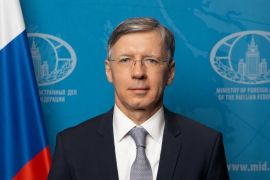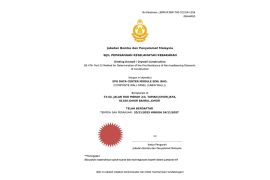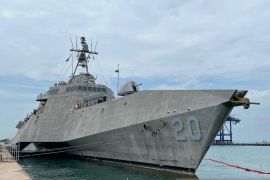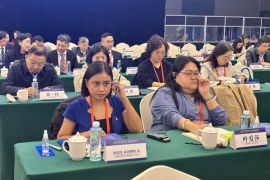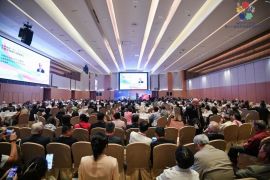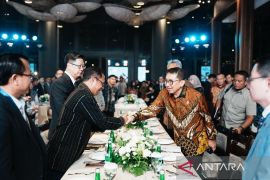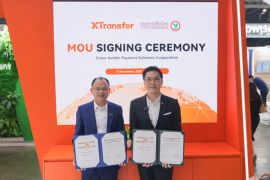We are striving to mitigate risks related to geopolitical issues, such as those in Europe and the Middle East.Tokyo (ANTARA) -
The Indonesian government has reaffirmed its commitment to maintaining the stability and security of the region of the Association of Southeast Asian Nations (ASEAN) and preventing it from becoming a hotspot of conflict.
"All ASEAN leaders await steps taken by Indonesia, considering the country's major role. Hence, we in the ASEAN must preserve our togetherness to prevent our region from becoming a conflict zone," Coordinating Minister for Economic Affairs, Airlangga Hartarto, said at the 29th Nikkei Forum on the Future of Asia in Tokyo on Friday.
The minister affirmed that conflicts and instability can threaten the economy of a region.
"We are striving to mitigate risks related to geopolitical issues, such as those in Europe and the Middle East," said Hartanto.
Hartarto noted that Southeast Asia is the only region to experience an average economic growth rate of four percent in the aftermath of the COVID-19 pandemic.
"We see no regions, other than the ASEAN, enjoying peace and stability. Indonesia, as the largest economy in the region, has been working to maintain this condition," he added.
He then pointed to ASEAN's uniqueness, saying that all decisions made by the association are the results of regional consensus and solidarity.
"The ASEAN seeks to organize its economy deeply and pursues continued regional stability," he added.
The Indonesian official further said that geographically, ASEAN countries are surrounded by developed countries, providing them with great opportunities to forge cooperation and pull in investment.
Apart from safeguarding the region's stability, Indonesia is also focusing on mitigating issues concerning the stocks and prices of food commodities, oil, and gas, he said.
"We know that India has resumed its rice exports. On that note, it is safe to say that food self-sufficiency is vital in Asia. Indonesia, together with Thailand, the Philippines, and Vietnam, have reached an agreement to create a crisis buffer in the food chain," he informed.
At the forum, Hartarto also touched upon several other topics, including the creation of the digital ecosystem, Asia's journey toward zero-emissions as well as the roles played by Japan, the United States, and South Korea in Northeast Asia's security.
The forum was also joined by Malaysian Prime Minister (PM) Anwar Ibrahim; Thai PM Srettha Thavisin; Deputy PM of Vietnam, Le Minh Khai; Deputy PM of Singapore, Gan Kim Yong; Deputy PM of Cambodia, Sun Chanthol; and Secretary-General of ASEAN, Kao Kim Hourn, among others.
Related news: The ASEAN-Japan Centre Relaunches Official Website: New Database and Interview Content Added
Related news: Minister Hartarto meets ASEAN Secretary General at Paris OECD meeting
"All ASEAN leaders await steps taken by Indonesia, considering the country's major role. Hence, we in the ASEAN must preserve our togetherness to prevent our region from becoming a conflict zone," Coordinating Minister for Economic Affairs, Airlangga Hartarto, said at the 29th Nikkei Forum on the Future of Asia in Tokyo on Friday.
The minister affirmed that conflicts and instability can threaten the economy of a region.
"We are striving to mitigate risks related to geopolitical issues, such as those in Europe and the Middle East," said Hartanto.
Hartarto noted that Southeast Asia is the only region to experience an average economic growth rate of four percent in the aftermath of the COVID-19 pandemic.
"We see no regions, other than the ASEAN, enjoying peace and stability. Indonesia, as the largest economy in the region, has been working to maintain this condition," he added.
He then pointed to ASEAN's uniqueness, saying that all decisions made by the association are the results of regional consensus and solidarity.
"The ASEAN seeks to organize its economy deeply and pursues continued regional stability," he added.
The Indonesian official further said that geographically, ASEAN countries are surrounded by developed countries, providing them with great opportunities to forge cooperation and pull in investment.
Apart from safeguarding the region's stability, Indonesia is also focusing on mitigating issues concerning the stocks and prices of food commodities, oil, and gas, he said.
"We know that India has resumed its rice exports. On that note, it is safe to say that food self-sufficiency is vital in Asia. Indonesia, together with Thailand, the Philippines, and Vietnam, have reached an agreement to create a crisis buffer in the food chain," he informed.
At the forum, Hartarto also touched upon several other topics, including the creation of the digital ecosystem, Asia's journey toward zero-emissions as well as the roles played by Japan, the United States, and South Korea in Northeast Asia's security.
The forum was also joined by Malaysian Prime Minister (PM) Anwar Ibrahim; Thai PM Srettha Thavisin; Deputy PM of Vietnam, Le Minh Khai; Deputy PM of Singapore, Gan Kim Yong; Deputy PM of Cambodia, Sun Chanthol; and Secretary-General of ASEAN, Kao Kim Hourn, among others.
Related news: The ASEAN-Japan Centre Relaunches Official Website: New Database and Interview Content Added
Related news: Minister Hartarto meets ASEAN Secretary General at Paris OECD meeting
Translator: Juwita T, Tegar Nurfitra
Editor: Arie Novarina
Copyright © ANTARA 2024
